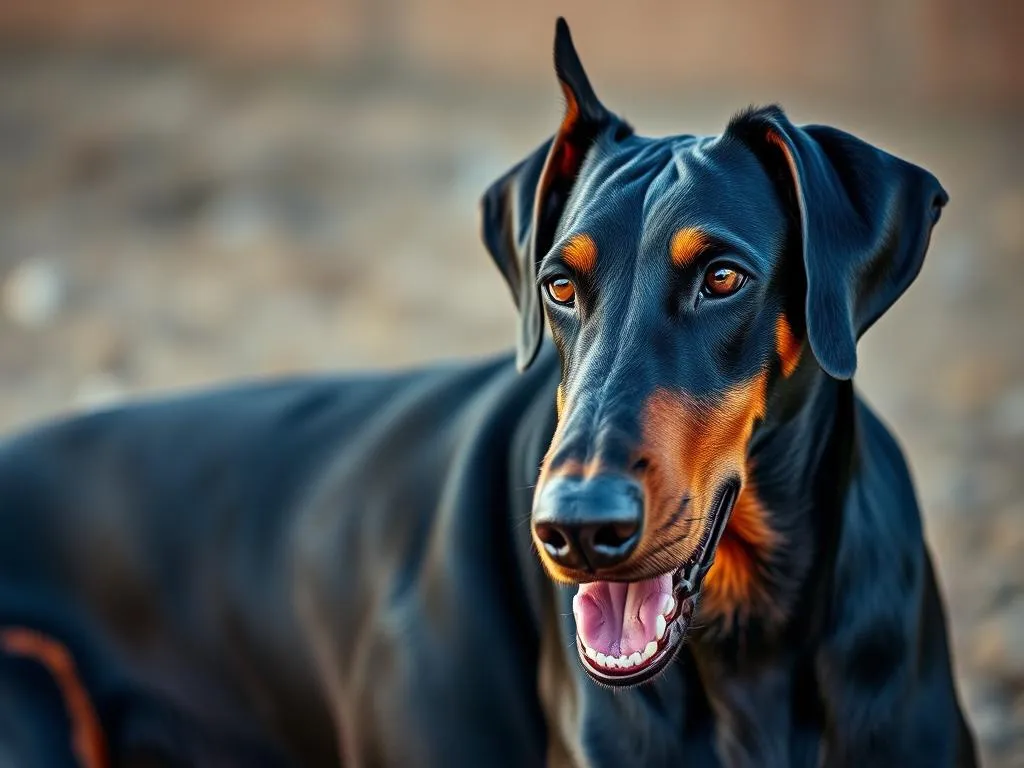
Introduction
Guard dogs play a critical role in ensuring safety and security, not just for individuals but also for families and properties. Their ability to deter intruders and protect their loved ones makes them invaluable companions in many households. Among the various breeds known for their guarding capabilities, the Doberman Pinscher stands out. This breed is often recognized for its striking appearance, intelligence, and loyalty.
In this article, we will delve into the question: do Dobermans make good guard dogs? We will explore the characteristics that define effective guard dogs, examine the Doberman breed in detail, and analyze the factors that contribute to their success as protectors.
Understanding Guard Dogs
Definition of Guard Dogs
Guard dogs are trained canines that protect people, property, and livestock from potential threats. Unlike watchdogs, which are primarily tasked with alerting their owners to disturbances, guard dogs are equipped to take action against intruders. A guard dog’s role involves not just barking but also potentially engaging in protective behavior.
Key Characteristics of Effective Guard Dogs
Several traits are essential for a dog to be considered an effective guard dog:
- Loyalty and Protectiveness: A strong bond with their owner enhances a dog’s instinct to protect.
- Intelligence and Trainability: A clever dog can learn commands and respond appropriately in various situations.
- Physical Strength and Agility: The ability to physically confront a threat is crucial.
- Alertness and Vigilance: An effective guard dog must be aware of its surroundings and able to detect unusual activity.
The Doberman Pinscher Breed
Breed History and Origin
The Doberman Pinscher originated in Germany in the late 19th century. Developed by a tax collector named Karl Friedrich Louis Dobermann, the breed was intended to serve as a loyal companion and protector during his rounds. Dobermans were bred for their strength, endurance, and intelligence, quickly becoming one of the most popular choices for guard duties.
Physical Characteristics
Dobermans are medium to large-sized dogs, typically weighing between 60 to 100 pounds. Their sleek, muscular build contributes to their agility and strength. They have a short, smooth coat that may come in various colors, including black, red, blue, and fawn. Regular grooming is minimal, but their coat does benefit from occasional brushing.
Temperament and Behavior
The general temperament of Dobermans is characterized by confidence, loyalty, and a protective nature. They are known to be affectionate with their families while remaining cautious around strangers. Early socialization is crucial for Dobermans, as it helps them develop appropriate interactions and reduces the likelihood of aggressive behavior.
Do Dobermans Make Good Guard Dogs?
Natural Instincts
One of the most compelling reasons to consider a Doberman as a guard dog is their strong protective instincts. Dobermans are naturally territorial and will instinctively defend their home and family against perceived threats. Many owners report instances where their Doberman has alerted them to intruders or stood between them and a potential danger.
Trainability as Guard Dogs
Training is paramount in developing a Doberman’s skills as a guard dog. While they possess natural instincts, proper training helps refine these abilities. Dobermans are highly intelligent and eager to please, making them relatively easy to train. Using positive reinforcement techniques, such as treats and praise, can significantly enhance their learning experience.
Real-Life Examples and Case Studies
Many Doberman owners have shared success stories about their dogs serving effectively as guard dogs. For example, one owner recounted how their Doberman barked and positioned itself protectively in front of their family when an unfamiliar person approached their home. Testimonials from trainers also highlight Dobermans’ ability to learn commands quickly and act decisively in protective situations.
Factors Influencing Guard Dog Effectiveness
Owner Experience and Commitment
The effectiveness of a Doberman as a guard dog heavily relies on the owner’s experience and commitment to training. New dog owners may struggle without proper guidance, while experienced handlers can channel the dog’s energy and instincts effectively. Consistent training and positive reinforcement are essential for building a strong bond and ensuring the dog’s responsiveness.
Environment and Lifestyle
The living environment can significantly impact a Doberman’s ability to function as a guard dog. Dobermans thrive in spaces where they can exercise regularly and have room to patrol. Urban settings may provide challenges such as noise and distractions, while rural areas can offer the space for natural behavior. Understanding your lifestyle and the dog’s needs can help determine the suitability of a Doberman as a guard dog in your particular situation.
Health Considerations
Like all breeds, Dobermans are prone to certain health issues that can affect their performance. Common concerns include hip dysplasia, heart conditions, and von Willebrand’s disease. Regular veterinary check-ups, a balanced diet, and consistent exercise can help mitigate these issues and ensure your Doberman remains healthy and active.
Pros and Cons of Dobermans as Guard Dogs
Advantages
- Strong Protective Instincts: Dobermans are naturally inclined to protect their families and property.
- Intelligence and Loyalty: Their high intelligence allows for effective training, and their loyalty fosters a strong bond with owners.
- Versatility: Dobermans can serve multiple roles, including being family pets and dedicated protectors.
Disadvantages
- Potential for Aggression: If not properly trained or socialized, Dobermans can exhibit aggressive behavior.
- High Energy Levels: Their need for physical activity requires a commitment to regular exercise and mental stimulation.
- Need for Consistent Leadership: Dobermans thrive under clear guidance, necessitating a confident owner to establish authority.
Conclusion
In conclusion, do Dobermans make good guard dogs? Yes, they do, provided they receive the proper training, socialization, and care. Their natural protective instincts, intelligence, and loyalty make them excellent candidates for guarding homes and families. However, potential owners should weigh the pros and cons and consider their ability to meet a Doberman’s physical and emotional needs. By understanding the breed’s characteristics and requirements, you can make an informed decision about whether a Doberman is the right fit as a guard dog in your life.
Frequently Asked Questions (FAQ)
Are Dobermans aggressive by nature?
Dobermans are not inherently aggressive; however, they can display aggressive tendencies if not properly trained and socialized.
How much training does a Doberman need to be an effective guard dog?
A Doberman requires consistent training from an early age, focusing on obedience and socialization skills to become an effective guard dog.
Can Dobermans be family pets and guard dogs at the same time?
Yes, Dobermans can serve as both family pets and guard dogs, provided they are well-trained and socialized.
What are the best training techniques for Dobermans?
Positive reinforcement techniques, such as using treats and praise, are effective for training Dobermans.
How do Dobermans compare to other guard dog breeds?
Dobermans are often compared to breeds like Rottweilers and German Shepherds, each with unique traits. Dobermans are known for their agility and intelligence, making them highly trainable.









